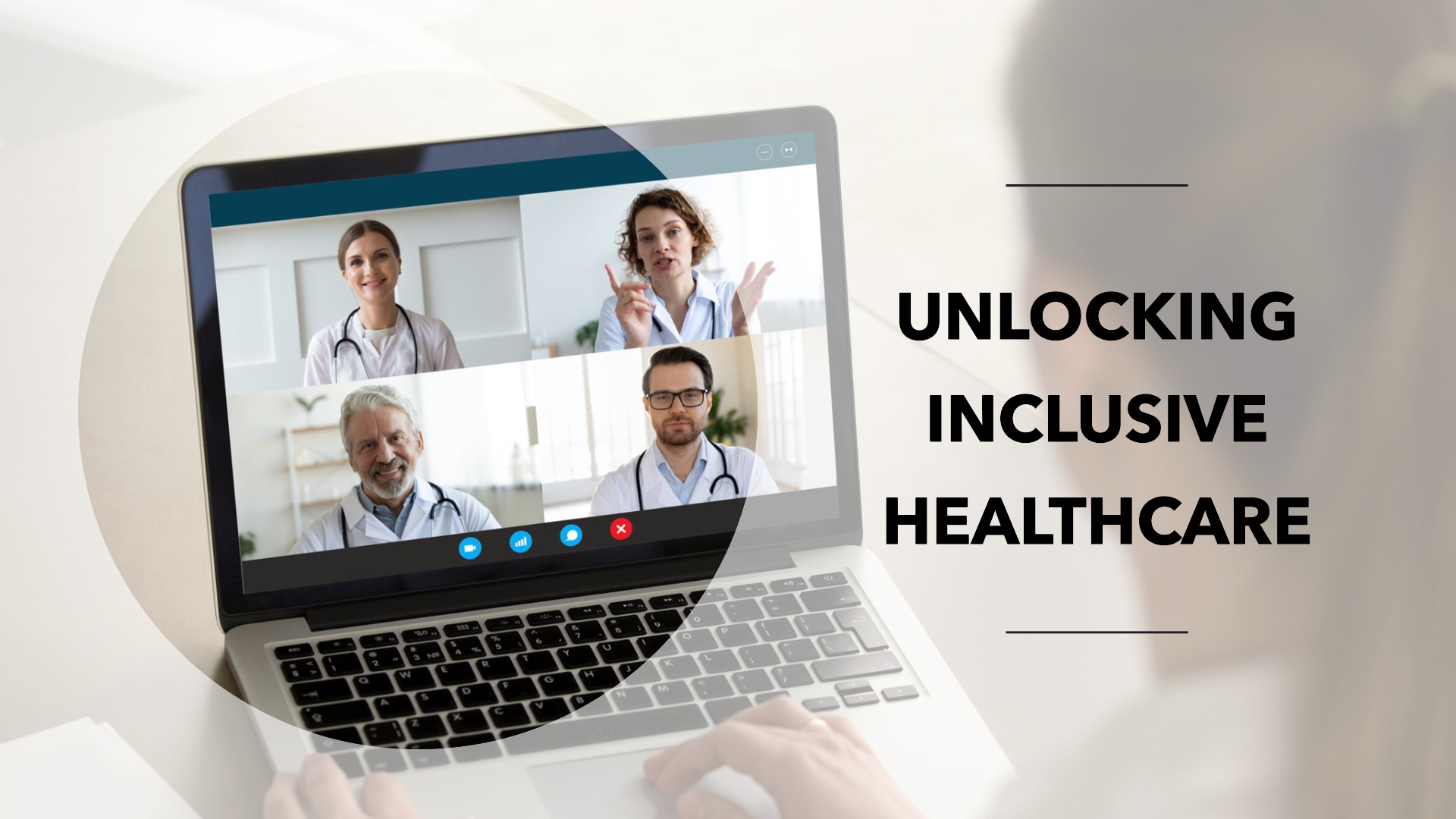Social media is a great way to connect with patients and clinicians. It allows them to share information and provide support.
The benefits of social media in healthcare are many. Patients can learn more about their condition, and clinicians can learn new ways to treat it. Social media can also help patients feel connected with others who have the same conditions, which improves their quality of life.
In addition, social media can be used to improve patient care by allowing clinicians to learn from experts outside their organizations or practice areas. This is especially important for doctors who specialize in rare diseases or unusual cases because they may not see enough cases on a regular basis to keep up-to-date with the latest research and treatments available.
Digital health and social media are vital tools for improving patient care today. On this article we are going to talk about:
- The role of social media in improving the quality of life for patients with chronic conditions
- How patients can use social media to learn more about their condition
- How clinicians can use social media to learn new ways to treat chronic conditions
- The benefits of social media for patients with chronic conditions
- The benefits of social media for clinicians treating patients with chronic conditions
The role of social media in improving the quality of life for patients with chronic conditions
The benefits of social media in healthcare are numerous and varied. For example, there are numerous reports that patients can learn more about their condition, and clinicians can learn new ways to treat it. This is especially important given the dramatic increase in chronic conditions (such as diabetes) over the past few decades. Yet, there has been limited research on how social media can improve the quality of life for patients with chronic conditions.
In a recent treatment algorithm study at the University of Pennsylvania, researchers found that patients who were given access to social media tools had improved self-reported health status and decreased depression. The researchers also found that patients who used social media tools rated themselves as having a better quality of life than did those who did not use them (a finding consistent with other studies).
Social media is a rising trend in the healthcare industry. Social media is a way to connect people, share ideas and stories and build communities. It has been used to help patients with chronic conditions improve their health and quality of life. Social media has also been used to improve communication between patients and providers, which can help improve patient outcomes. There are many advantages to using social media in healthcare, but there are some disadvantages as well.
One way social media can help people manage their health is by providing them with an outlet for peer support. With the rise of online communities like Facebook groups and Instagram accounts, people who suffer from similar illnesses or symptoms can connect with each other online and share tips on how they cope with their condition(s). They can also seek advice from doctors who have expertise in specific conditions via video chat services like Skype or FaceTime.
How patients can use social media to learn more about their condition
Social media is not just a tool for patients to share their experience of diseases. It can also be used by clinicians to improve patient care, show a better understanding of the disease and its progress, and learn more about the patient’s condition.
The benefits of social media in healthcare are numerous.
It can help patients learn more about their condition, and clinicians can learn new ways to treat it. Social media platforms such as Twitter, Facebook, Instagram and Tumblr allow patients to connect with like-minded people who have similar conditions as them. Patients can also be able to work alongside their peers in the same field to help them understand more about the disease itself. This helps build trust between patients and clinicians that can only really be fostered through social media platforms.
Patients can learn more about their condition by using social media to connect with others who are going through the same thing. For example, if you have chronic fatigue syndrome, there’s a group of Facebook users who will have been through the same experience and can offer advice on how to manage your symptoms.
Another way patients can use social media is to share their experiences with people who might not know much about their condition. For example, if you have epilepsy, you could use your social media platform to talk about what it’s like to live with the condition and how it affects your daily life. This will help others who may be struggling with similar issues feel less alone and give them some insight into what they can expect from living with epilepsy too!
Social media is a great way for patients to stay connected with others who may be suffering from similar conditions but also offers an opportunity for raising awareness within our communities about these illnesses so that hopefully one day we will see fewer people suffering from these diseases because they’ve been diagnosed early enough!
How clinicians can use social media to learn new ways to treat chronic conditions
Social media is a disruptive force in healthcare. It’s challenging to manage and policy makers are just beginning to understand its potential impact on patient care. It’s also an opportunity for clinicians to learn new ways to treat chronic conditions.
A study, published in the Journal of the American Medical Association, found that patients who were regularly exposed to social media were more likely to follow through with recommended treatments than those who were not. The authors of the study suggest that clinicians should get involved in patient social media use by providing training and support.
Social media is a powerful tool for clinicians. It can help them learn new ways to treat chronic conditions, as well as find information about how their patients are doing with their own treatment plans.
Here are some ways that social media can be used:
- Doctors can use social media to research new treatments for chronic conditions like diabetes, cancer, and heart disease. They can also find out about the latest medical breakthroughs in these areas and share them with their patients
- Doctors can use social media to keep track of how well their patients are doing with their treatment plans, and offer support when needed. They may also be able to offer advice on how to manage symptoms or side effects from medications or other treatments
- Doctors may also be able to find out what kinds of resources are available in the community, like support groups or classes, that could help patients deal with chronic conditions like diabetes or heart disease
The benefits of social media for patients with chronic conditions
Chronic diseases are some of the most neglected and overlooked medical conditions. Despite the fact that chronic diseases have been known to lead to a wide range of health problems, they are rarely studied. This is especially true when it comes to understanding not only how the disease may affect a patient but also how social media can be used for patient education.
Although chronic diseases have always had an effect on patients’ lives, many people don’t even realize how serious it can be. It’s hard to imagine that you could possibly die from something that you were never even aware of until it happens.
And until a doctor knows about the disease and can treat it, most people who suffer from chronic ailments aren’t aware of how serious and dangerous their condition may be. With social media, patients can learn more about their condition and clinicians can learn new ways to treat it. Patients who are using social media as a resource for information have reported improved self-esteem, increased confidence in their own health and treatment options, improved quality of life and decreased anxiety due to being able to communicate with others who suffer from similar conditions as them.
Social media can be a powerful tool for patients with chronic conditions. It’s an opportunity for them to connect with others who are going through the same thing, access helpful information and tools, and feel less isolated.
Here are some of the benefits of social media for patients with chronic conditions:
- Provides a sense of community and belonging
- Offers a safe place to share information and experiences
- Builds self-esteem by sharing positive stories about managing their condition
- Takes away some of the stigma associated with having a chronic condition
The benefits of social media for clinicians treating patients with chronic conditions
The benefits of social media in healthcare are extensive. Patients can learn more about their condition, and clinicians can learn new ways to treat it. Patients with chronic conditions can also share their experiences, which improves their quality of life. Social media is also a great way for patients to find similar conditions that they might not have found previously.
Social media has become a powerful tool in the treatment of chronic conditions. Social media platforms allow patients to connect with other people who share their experiences, and to engage in conversations about how to manage their conditions. This can be incredibly helpful for patients who are looking for support, or who want to share their own experiences and offer advice to others.
Patients can also turn to social media when they need more information about their condition, or want more details about how it affects them.
Many healthcare professionals have taken note of the potential benefits of social media for patients with chronic conditions and have started using these platforms themselves. This means that some doctors are now going on Twitter, Facebook and Instagram so that they can talk directly with patients about their treatment plans and provide them with useful tips on how best to manage their condition.
It’s not just doctors who have taken advantage of the power of social media; many hospitals have also set up accounts on Facebook where they can post pictures of recent events (such as children’s day) or post updates on current campaigns (such as blood donations).
Social media is an important tool for clinicians treating patients with chronic conditions. Here are some of the benefits:
- Social media allows us to connect with our patients in a way that’s more personal and engaging than an email or phone call can be. It gives them a space to ask questions about their condition, discuss concerns
- Social media helps us track our patients’ progress over time so we can monitor whether they’re making progress on their goals, as well as adjust our treatment plans as needed
- Social media provides a way for us to share information with other clinicians who may be treating the same patient, and vice versa—this can help us learn from one another’s experiences and share best practices when it comes to treating similar conditions in different patients
I was inspired to write this article after my conversation with Professor Atanas G. Atanasov. In this episode, we talked about the use of Social Media for Digital Health Communications. Prof. Atanas Atanasov shared incredible insights about Social Media in Digital Health and the growing importance of digital presence nowadays. He also shared great and valuable strategies to be successful and impactful on social media.
Watch Episode #43 of Digital Health & Wearables Series:
Contact us for more relevant details. To find out more about how we can help you with your Digital Healthcare Transformation, Healthcare organizational growth, or Healthcare brand positioning, please get in touch via phone +44 (0) 203 3620421 or via e-mail: info@digitalsalutem.com





